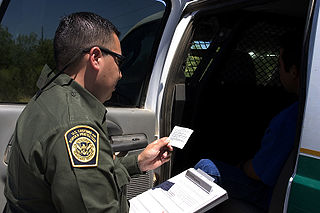Boston Bombing Suspect's Miranda Warning Put On Hold For 'Public Safety Exception'By Dieter BohnThe Verge Apr. 20, 2013 |
Popular 
How I Broke 300M Views on X in 2025

Tikvah Fund, After Securing $10.4M Grant From Trump Admin, Pushes for Censorship to Advance Zionism

ADL: 'Seven Largest Jewish Communities' Hold Biweekly Meetings to 'Share Tips,' 'Draft Legislation'

Trump's Israeli-Born Pick for U.S. Anti-Semitism Czar Plans to Work With Social Media to Suppress 'Hatred'

Bari Weiss Picks Tony Dokoupil to Anchor CBS Evening News
  Now that second Boston bombing suspect has been apprehended, there are still lots of unanswered questions swirling. One of them is whether or not he has been read his Miranda rights, which are designed to protect a suspect's Fifth and Sixth Amendment rights under the US Constitution. The answer as of this writing that the bombing suspect is not being read his rights. "There is a public safety exemption in cases of national security and potential charges involving acts of terrorism," said US Attorney Carmen Ortiz at a press conference tonight, "And so the government has that opportunity right now, though I believe that the suspect has been taken to a hospital." Now that second Boston bombing suspect has been apprehended, there are still lots of unanswered questions swirling. One of them is whether or not he has been read his Miranda rights, which are designed to protect a suspect's Fifth and Sixth Amendment rights under the US Constitution. The answer as of this writing that the bombing suspect is not being read his rights. "There is a public safety exemption in cases of national security and potential charges involving acts of terrorism," said US Attorney Carmen Ortiz at a press conference tonight, "And so the government has that opportunity right now, though I believe that the suspect has been taken to a hospital."Talking Points Memo confirmed with an official at the Department of Justice that so far Dzokhar Tsarnaev has not been read his rights, so that the DOJ could "question the suspect extensively about other potential explosive devices or accomplices and to gain critical intelligence." The public safety exception has existed since 1984, when the Supreme Court ruled that in very limited cases, law enforcement could question a suspect about imminent threats before reading Miranda rights. Those rules became established law, and in February 2011, the FBI itself published an extensive review of the public safety exception. In it, the FBI said that "questions designed solely to elicit incriminating statements" fell outside the public safety exception and that Miranda applied to them. "Such interrogation might include, for example, questions about possible impending or coordinated terrorist attacks." However, the Obama administration has long pushed for an expanded interpretation of the public safety exception. In March of 2011, a memo from the FBI leaked to the New York Times which "encouraged agents to use a broad interpretation of public safety-related questions." It generally instructs agents to limit their questioning to issues of "immediate concern for the safety of the public or the arresting agents," but does grant that there are "exceptional cases" in which "continued unwarned interrogation is necessary to collect valuable and timely intelligence not related to any immediate threat." In those cases, agents are told to seek higher approval whenever possible. Read More |



